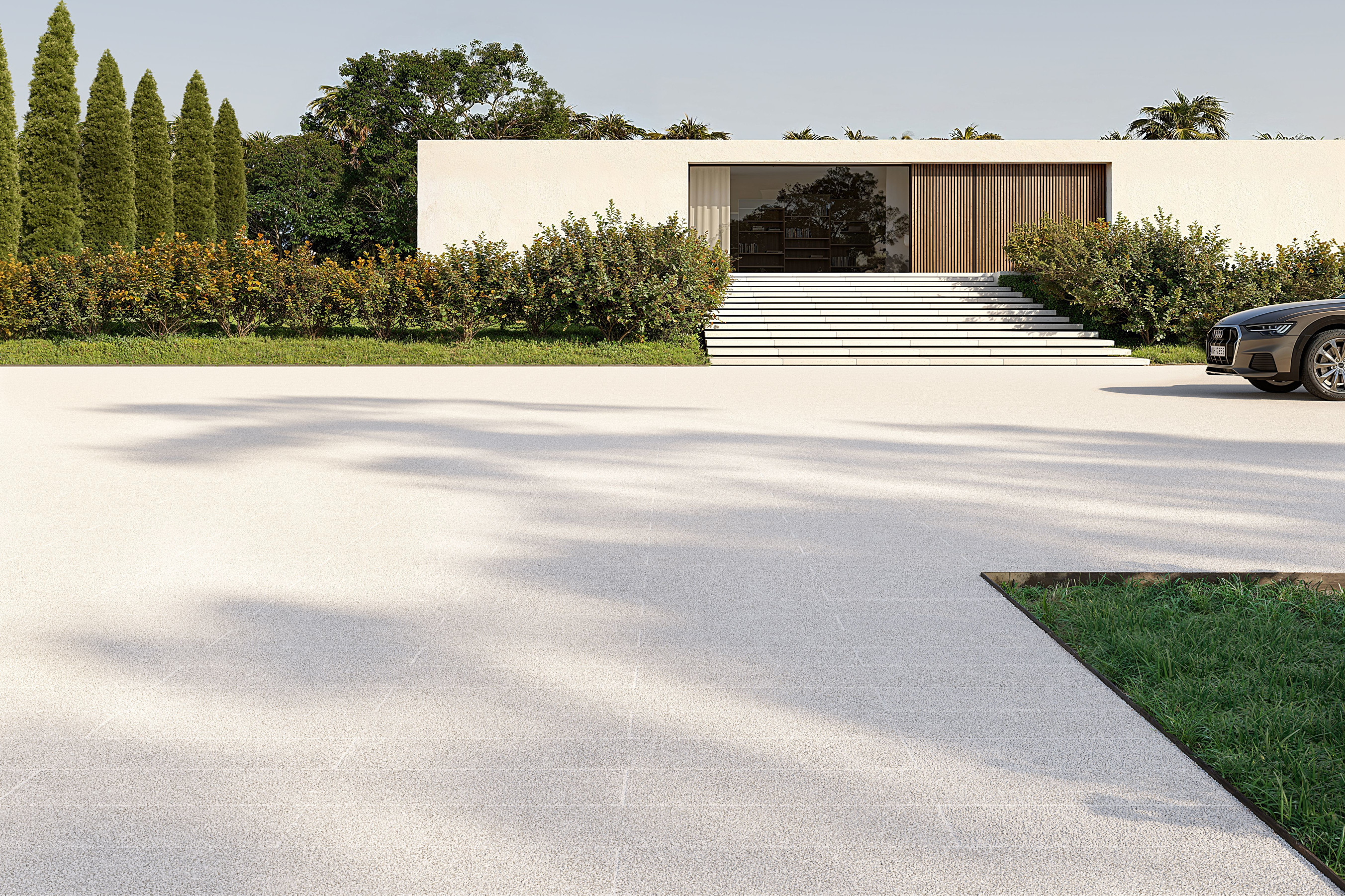
Recycle 2.0®
Filtering flooring in marble stone



Advantages of Permeable Self-Locking Pavements
Permeable paving is a surface designed to allow water to filter through it, preventing water buildup and promoting infiltration into the ground. Made from materials such as gravel, porous bricks, or permeable asphalt, it is commonly used in roads, parking lots, sidewalks, and green areas to improve urban drainage.
One of the most common solutions includes permeable interlocking pavers, which consist of interlocking blocks that are installed without mortar, making them easy to assemble and disassemble. These permeable materials allow for more effective management of rainwater, improving water quality by filtering pollutants and helping to recharge aquifers, a crucial factor in densely paved urban areas.
Beyond water management, permeable paving helps reduce the urban heat island effect, staying cooler than traditional materials and enhancing thermal comfort in cities. Its adoption is a sustainable practice, reducing environmental impact and conserving water resources.
Finally, permeable pavements also offer aesthetic advantages: available in various shapes, colors, and materials, they can be adapted to different urban settings like pedestrian areas, gardens, and parking lots, contributing to the creation of green, livable spaces in cities.

Filtering flooring in marble stone


The floor with runoff index = 0.05

100% Quartz filter floor
Quadra is the collection of concrete slabs whose prerogative is the versatility of the product itself, created to adapt to stylistic and structural needs, leaving total creative freedom.